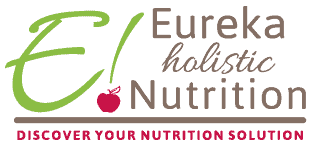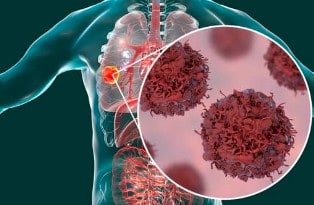
The National Cancer Institute reports that, “Cancer is among the leading causes of death worldwide. In 2018, there were 18.1 million new cases and 9.5 million cancer-related deaths worldwide.”(1) It is also reported that cancer directly affects almost half of the US population.(2)
With statistics this large it is important to discuss what can we do to impact these numbers personally. Cancer is a complex disease, but what if it’s not as unique as we think? What if it’s just like diabetes or heart disease or Alzheimer’s? Often cancer is placed in its own category too mysterious to understand; too complicated to really know what to do. Part of why cancer seems to be in a league of its own is the focus on genetics. Is cancer a genetic disease? You may have heard that. Cancer research for the last 50+ years has focused primarily on the genetics, but “study after study show that only 5-10 percent of cancer is caused by damaged DNA.” Is the genetic approach working? Not according to the statistics.
There is another approach.
It’s the approach of original cancer research before the genetic aspect took center stage. It’s the approach that not only offers hope; it also provides the tools to treat and prevent long term. It’s The Metabolic Approach to Cancer. What if we understood cancer as a metabolic disease? “The remaining 90-95 percent of cancer cases are caused by poor diet and unhealthy lifestyles that also damage the mitochondrial function.” (2)
What does it mean for cancer to be a metabolic disease? Cancer cells live and thrive in a certain type of environment. The way our body’s process foods for energy, produce hormones, detoxify, digest, balance our blood sugars, create thought and belief patterns all impact cancer cell growth. This is why diet and lifestyle factors must be addressed whether you are trying to prevent cancer, actively fighting cancer or are in remission.
Let’s get specific. Taking the metabolic approach…The Metabolic Approach to Cancer and other highly researched sources have identified both the physiological and mental/emotional elements that create the environment that stifles cancer. These factors are called the Terrain Ten. (2)
The Terrain Ten
- Genetic, epigenetic, and nutrigenomic modifications
- Blood sugar balance
- Toxic burden management
- Repopulating and balancing the microbiome
- Immune system maximization
- Modulating inflammation and oxidative stress
- Enhancing blood circulation while inhibiting angiogenesis and metastasis
- Establishing hormone balance
- Recalibrating stress levels and biorhythms
- Enhancing mental and emotional well-being
All these systems are connected and can impact each other, when one terrain is disrupted it can negatively affect all the others. The team at Eureka! uses a phased approach with targeted nutritional therapy, mindset coaching, detoxification, digestive, immune and hormone balancing strategies to create a metabolically hostile environment for cancer to survive and thrive. See below for how our phases are constructed:
Phase I – Reset (Terrain 1-3)
In Phase I drastically reduce inflammation, decrease toxic burden, balance blood sugar, optimize epigenetic and weight management factors + #10 Mindset Coaching
Phase II – Rebuild (Terrain 4-6)
In Phase II rebuild your immune system with a focused protocol for gut health, drastically reduce oxidative stress and continue to detoxify and lowering inflammation levels + #10 Emotional Health Coaching
Phase III – Renew (Terrain 7- 9)
In Phase III Balance hormones, support the HPA axis and stress response + #10 Spiritual Stress Mastery to connect physical, mental, emotion and spiritual aspects of healing.
Phase IV – Reclaim
Aspects of Phases 1-3 all come together for your long term lifestyle plan to prevent disease and reclaim your health!
Throughout each phase we focus on each area of D.R.E.S.S. Diet is an important part for all of our clients, but especially important when dealing with cancer. Food is TRULY medicine and IS cancer’s worst enemy IF you choose the right foods for you.
A low-glycemic, ketogenic, plant centric diet and intermittent fasting should be an integral part of an effective anticancer diet program. (2) We know that cancer cells ingest sugar- all kinds of sugar. There are two types of sugar – naturally occurring and added.
| Type of Sugar | Examples |
| Naturally Occuring | Milk, fruit, honey |
| Added Sugars | Processed foods, organic cane juice, table sugar, high fructose corn syrup, etc |
In cancer, it really does not matter WHERE it comes from if the item raises your blood sugar it will FEED the cancer. If it’s organic corn syrup, dried fruit, soda, fruit juice, high fructose corn syrup, honey, or a banana – if it causes blood sugar to rise the cancer cells will use it to thrive and reproduce! (Of course, we will always recommend a phytonutrient rich, high fiber containing item such as a raspberry as opposed to a cookie or granola bar.) This is why a low glycemic ketogenic diet is recommended for cancer. The ketogenic diet has been around for over a century. It was developed in 1920 as treatment for epilepsy.
Glucose (sugar) & Insulin = Cancer’s best friend
Ketosis = Cancer’s worst enemy.
What is a ketogenic diet?
A ketogenic diet consists of high fats, moderate proteins, and very low carbohydrates.
- Dietary macronutrients are divided into approximately 65-75% fat, 25-35% protein, and 10-15% carbohydrates (your coach will set your exact macros).
- The reduction of carbohydrates puts the body into a metabolic state called ketosis.
- The body becomes more efficient at burning fat for energy and turns fat into ketones in the liver.
- This will provide alternative fuel for the brain.
When following the ketogenic diet it is important to remain on a whole foods plant centric diet. We also recommend you remove trigger foods that cause inflammation. The coaches at Eureka! can help to create individualized meal plans and provide recipes for meals/snacks to help you follow a ketogenic diet while avoiding your inflammatory foods. Clients receive a full Nutrition Workup that includes the NutriEval Functional Lab test that reveals how food can rebuild your cellular health + the ALCAT Food Sensitivity test to create your customized nutrition plan!!
Rest is also key when preventing, treating or recovering from cancer. It is reported that cancer risk is increased in those who don’t sleep, and is especially higher in shift workers and also in those who often cross times zones during air travel. (2) Adults requrie at least 8 hours of sleep a night. During this time hormones are released, tissues grow and repair, neurological pathways are regenerated, detoxification occurs, and the immune system is replenished. (2)
Adequate sleep is so vital for our bodies each night but we also know that rest is more than just sleep! There are Seven Different types of Rest we need to optimally function as identified by Dr. Saundra Dalton-Smith MD listed below:
TYPE 1 – Physical Rest
TYPE 2 – Mental Rest
TYPE 3 – Emotional Rest
TYPE 4 – Spiritual Rest
TYPE 5 – Creative Rest
TYPE 6 – Social Rest
TYPE 7 – Sensory Rest
The Coaches at Eureka! work with you to set weekly goals to ensure you are able to reach as many of the different types of Rest as possible or provide suggestions so you can obtain at least eight hours of restful sleep. For more information and tips on rest check out our article REST RX.

When it comes to cancer, optimizing diet and exercise are the two top ways to prevent the disease. (2) We know from research that a sedentary lifestyle increases the risk of developing both cancer and cardiovascular disease. (2) The intensity and type of exercise may change based on the type of cancer or throughout your treatment process. Research shows exercise can have a positive impact at any level. The NIH reports there is “Strong evidence that moderate-intensity aerobic training and/or resistance exercise during and after cancer treatment can reduce anxiety, depressive symptoms, and fatigue and improve health-related quality of life and physical function.” (3) For more information on types of exercise and how to incorporate it into your daily routine, check out our article The F.I.T.T.ness FIX.
Stress can impact all areas of our health. A chronically stressed out lifestyle that is out of sync with circadian rhythms (not sleeping, excess screen time, little outdoor time, and eating non-nutritive food out of season) causes disturbances to the pineal gland hormone melatonin and also to cortisol, which both bump up cancer risk exponentially. (2) Therefore stress management is essential for everyone. Stress comes in three primary forms: physical/metabolic and chemical, mental/emotional and spiritual.
| Type of Stress | Examples |
| Mental/Emotional/Spiritual | Sadness, fear, anger, bitterness, envy. Work pressure, financial worry, family related issues, divorce, loss of loved one, abuse, neglect, losing a job, moving, raising children |
| Physical/Metabolic | Chronic pain, disability, having cancer, autoimmune disease |
| Chemical | Exposure to pesticides, herbicides, preservatives, heavy metals, cleaning products, body care products, airborne chemicals, smoking and prescription and street drugs |
One of the best ways to manage stress is finding a support team. Whether it is a family member or close friend that can offer a listening ear or physically provide help (meals, house cleaning, running errands, etc). A supportive Christian counselor is also a great resource for those who need additional support. For additional recommendations on how to manage all the types of stress, check out our article Turning Stress to Strength!
Avoiding the chemical toxins can be hard when they are so prevalent in our world today. The first step of reducing your toxic burden is to be aware of where the toxins are coming from. Take note of the cleaning products in your home, your skin care products, the types of foods you are purchasing and even the types of candles or air fresheners in your home. There are five routes of entry for carcinogens:
A Carcinogen Route of Entry:
- Absorption (through the skin)
- Inhalation (through the lung)
- Ingestion (through the digestive tract)
- Injection (into the bloodstream)
- Ambient Exposures (through the immediate surroundings) – Radiation, x-rays, etc.
Eating foods that are organic, wild, grassfed, or pasture raised is a great start. Another is changing out cleaning products and skin care items for cleaner options. Check out the Environmental Working Group for additional information on the foods that have the most pesticides and cleaner products to use in your home. Though it may feel impossible to completely remove all toxin exposure, every reduction in exposure is positive for your health and wellbeing.
Supplement recommendations, personalized therapy options, and treatment protocols will differ for each individual. All have the same goal, decrease inflammation and create an environment where cancer is inhabitable. The Coaches at Eureka! will create personalized protocols for each Phase mentioned above for supplementation and natural therapies you can do at home that are inexpensive and highly effective!! Therapies recommended follow the terrain focuses for that Phase.
Diet and lifestyle changes are an integral part of all disease management but especially for cancer. Whether you are looking for prevention, support while fighting an active cancer or additional resources while in remission, Eureka! has the personalized DRESS protocols and empathetic coaching to give you the tools you need to thrive! As a enrolled client you receive a copy of The Metabolic Approach to Cancer book. If you are interested in finding out more about our Cancer Track of DRESS for Health Coaching Program, complete the Become a Client Intake form here!
Resources:
- https://www.cancer.gov/about-cancer/understanding/statistics
- Winters, N., & Kelley, J. H. (2017). The metabolic approach to cancer: Integrating Deep Nutrition, the ketogenic diet, and nontoxic bio-individualized therapies. Chelsea Green Publishing.
- https://www.cancer.gov/about-cancer/causes-prevention/risk/obesity/physical-activity-fact-sheet#how-might-physical-activity-be-linked-to-reduced-risks-of-cancer

